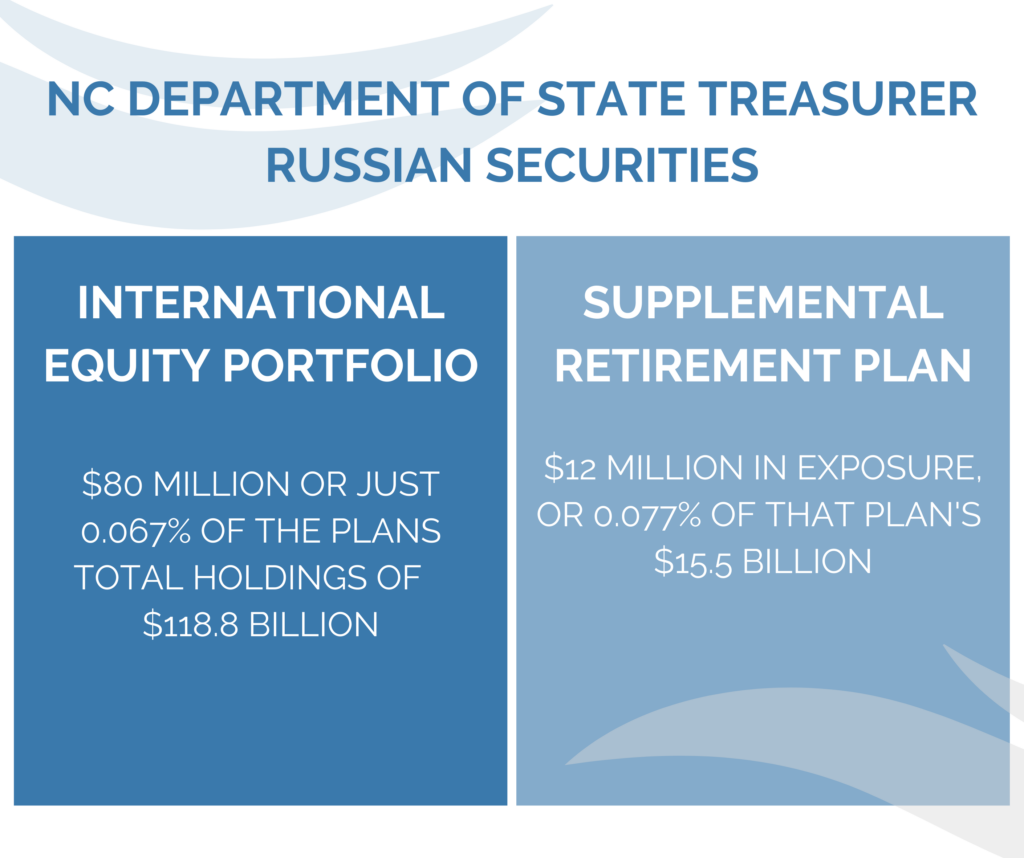NC Treasurer Dale R. Folwell, CPA

From the moment Russian missiles and artillery began to rain on Kyiv, Kharkiv, Odessa and the Donbas region of Ukraine, calls have come from the West to reject all things Russian, including the divesting of state pension plans from Russian companies and securities. As justified as these calls may be, it may not be as easy or as impactful
as you may think.
The Department of State Treasurer has held Russian securities as part of emerging markets portfolios for decades. But the Russian securities currently held in its international equity portfolio are minimal, as is the Supplemental Retirement Plan portfolio, which has holdings all within the international equity and index funds. The plans remain one of the most secure in the country, if not the world.

Other state systems have much larger Russian exposure, including the California Public Employees’ Retirement System and California State Teachers’ Retirement System, for example. They have investments of nearly $1 billion and $171.5 million, respectively.
However, getting rid of the holdings is proving to be far more complicated than hitting the “sell” button on your computer. Many financial-services providers are backing away from dealing in Russian-backed securities, and Western sanctions related to the financial and banking sectors make disposing of the assets problematic. Additionally, most holdings in Russian securities are now essentially worthless, forcing many into a difficult
decision because selling them at this time would guarantee substantial losses.
That’s why I recently called on Congress to amend federal law to give your state pension plan a pathway to recover what could be hundreds of millions of dollars in nationwide economic damages including the value of losses to the North Carolina Retirement Plans resulting from Russia’s unprovoked military attack on Ukraine.
The North Carolina House of Representatives supported my call when they unanimously passed House Resolution 981 sponsored by House Speaker Tim Moore, R-Cleveland. We are asking Congress to amend the Foreign Sovereign Immunities Act of 1976 (FSIA). The act generally exempts foreign-owned property from seizure
under U.S. law, effectively prohibiting states and others from recovering adverse judgments made against other countries including Russia.


